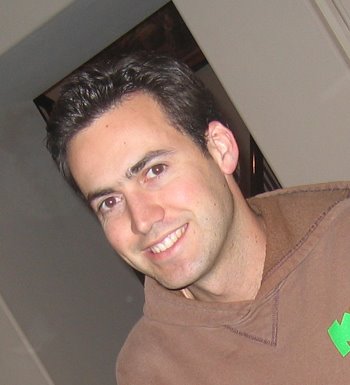For two years I have been wrestling with a personal reality. Like a conflicted Flannery O'Connor character I was running from the call on my life--I was running from my own blood. I am called to be a change-agent--a catalyst. In every organization or relationship that I touch I have been a catalyst for change. It is the trajectory of my life--it is a thread that links together all of my experience. In high school I naively asked God to make me a fork in the road and not a sign along the way. I wasn't satisfied with just pointing people in the right direction. I wanted my life to represent a choice; my life would demand a choice by everyone I encountered. And God granted it. Ever since, I haven't been able to avoid it; I can't wrestle it down; I can't suppress it. Believe me, I have tried. I have tried to suppress the impulse to innovate, change, risk, cast vision. Change is painful. Three years ago, I took a position where I made a conscious choice to suppress vision, innovation, and change. I chose stasis. I chose not to lead--leading had gotten me in trouble and I decided I had had enough. I figured as a middle manager I would let others lead and I would avoid the pain of change. I would do my job. Certainly I would be able to stay out of trouble by simply doing what my supervisor told me to do. Deep down I had surrendered to non-progress--but most of all I doubted my ability to effectively pioneer progress and lead people to a better future. Certainly, good leaders move people to a better destination and they don't lose people along the way. I had convinced myself that I had proven something--my history had proven I wasn't a good leader. And it seemed that everyone around me was willing to confirm that.
If you are a leader and you love progress you have heard things like: you're passionate because you are young, when you are older you will have the maturity to reign in the unbridled passion. I was like you once--but one day you will grow up and you will see things the way I see them. Change is like turning the Titanic, we need to turn the ship slowly--turning too sharply will throw people off the deck-- and it's implied that good leaders can effect change in an organization without people knowing it--like the frog in the pot. And for awhile I bought it. I bought into the idea that positive change was always incremental--it took long extended periods of time and it must be virtually imperceptible so as not to upset people. At the very least the best leaders make change comfortable. Ultimately this was proof of our love for people--after all we are a Christian organization and we are called to take care of the sheep and not lose any.
At the very best, I was dead wrong. First of all you cannot suppress who you are: in biblical language a leopard cannot change its spots. Second of all when Jesus said things like "if your right eye causes you to sin, pluck it out; it is better for you to go into eternity without an eye than to be damned in hell with 20/20 vision. " I imagine the Pharisees were looking at this 30 year-old Nazarene thinking, "Now hold it just a minute, I was once as passionate as you. Change is a process; it takes time. When you grow up you will understand." Jesus called them white washed tombs. Last time I checked that won't get you a raise.
Here is a reality for all leaders to embrace. Catalysts are forever changed by the changes they implement--often at their own personal cost. That is how God shapes us. According to Robert Quinn author of
Deep Change, "Change is hell, but not to change is also hell. The difference is that change is the hero's path." Not to change is to choose slow death. Jesus said "I came to give life and to give life in the full." Recently, I have chosen life over slow death. I don't want life to come incrementally. I want life in the full. So . . . I am going to begin by embracing my call, my blood, His Blood and be a catalyst. I have chosen to "walk naked in the land of uncertainty." To be the point leader of a church plant.
This means . . . In calling, in planting a church--I am a wounded leader. I hope that in my weakness I will be a leader of leaders. But I stand indomitably on this one idea that I will be a fork in the road, that our church will be a fork in the road. That we will teach as Jesus taught--not nice ideas for use at some future date, when its convenient, or when the fancy strikes us--but life change right now. Life change today. Life change that addresses real life problems. Deep down, people don't want incremental change--they want deliverance. Jesus Christ is the only deliverance. That is what my life is about. It is what our church is about.
